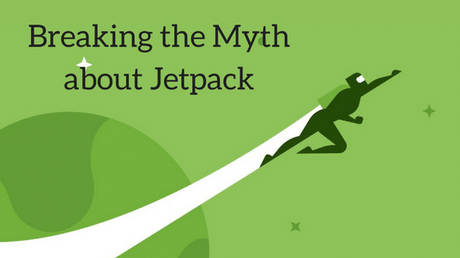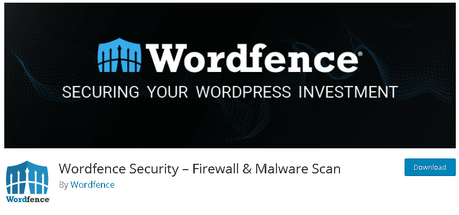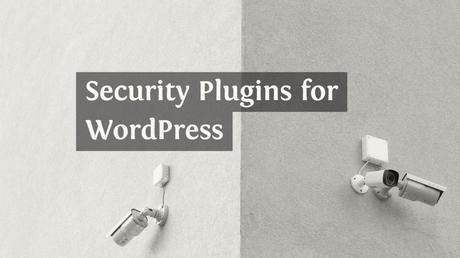In today’s digital landscape, website security is of paramount importance. With cyber threats becoming increasingly sophisticated, website owners must implement robust security measures to protect their online assets. Two popular security solutions that often come up in discussions are Jetpack and Wordfence. Both offer comprehensive features to safeguard websites, but understanding their unique offerings is crucial for making an informed decision. In this blog post “Jetpack vs Wordfence”, we will compare Jetpack and Wordfence, exploring their features, strengths, and weaknesses, to help you choose the best security solution for your website.

Summary of Jetpack vs Wordfence Comparison
Jetpack and Wordfence are both popular security solutions for websites, but they differ in terms of their features and approach. Here’s a summary of the comparison between Jetpack and Wordfence:
Jetpack
- The integrated solution combines security, performance, and marketing tools.
- User-friendly interface, making it easy for beginners to set up and manage security features.
- The trusted brand developed by Automattic, the company behind WordPress.com.
- Limited customization options compared to standalone security plugins.
- Reliance on a single provider may limit flexibility and options.
Wordfence
- Dedicated security plugin with a focus on malware detection, firewall protection, and real-time threat intelligence.
- Advanced scanning techniques to effectively detect and remove malware.
- The built-in firewall blocks malicious traffic and unauthorized access.
- Extensive customization options, allow users to fine-tune security measures.
- Can be overwhelming for beginners and may impact website performance on shared hosting plans.
Choosing between Jetpack and Wordfence depends on your specific needs and preferences. Jetpack is suitable for WordPress users seeking a comprehensive and easy-to-use solution without extensive customization. Wordfence, on the other hand, is ideal for users who prioritize advanced features, customization options, and fine-tuning security measures.
A brief explanation of the jetpack

Jetpack is a powerful WordPress plugin developed by Automattic, the company behind WordPress.com. It offers a wide range of features and tools designed to enhance the security, performance, and functionality of WordPress websites.
With Jetpack, website owners can benefit from features such as brute force protection, downtime monitoring, and automated backups, which help safeguard their sites from malicious attacks and potential data loss. Jetpack also offers a suite of performance optimization tools, including content delivery network (CDN) integration, image optimization, and lazy loading, which help improve website speed and user experience.
In addition to security and performance, Jetpack provides various marketing and engagement tools. It offers site statistics, social media sharing options, and related content recommendations to help website owners attract and retain visitors. Jetpack even includes features like custom contact forms, email subscriptions, and automated social media posting to streamline website management and audience engagement.
One of the key benefits of Jetpack is its seamless integration with WordPress, as it is developed by the same team. This ensures compatibility, regular updates, and reliable support. Jetpack offers both free and paid plans, with the paid plans unlocking additional features and priority support.
Also Read: Comparing the WordPress Security Plugins: Wordfence vs All-In-One WP Security
A brief explanation of the Wordfence

Wordfence is a highly regarded security plugin specifically designed for WordPress websites. It offers robust protection against various security threats, such as malware, hacking attempts, and unauthorized access.
With Wordfence, website owners can benefit from advanced features such as malware scanning and removal, real-time threat intelligence, and a web application firewall. The plugin constantly monitors and scans the website for potential vulnerabilities or malicious code, providing alerts and taking proactive measures to prevent security breaches.
Wordfence employs advanced scanning techniques, including deep server-side scans, to detect and remove malware effectively. It also includes a firewall that blocks suspicious traffic and prevents unauthorized access to the website. Additionally, Wordfence offers features like login security, two-factor authentication, and IP blocking to enhance the overall security posture of the website.
Furthermore, Wordfence provides regular updates to address emerging security threats, ensuring that websites stay protected against the latest vulnerabilities. The plugin also offers comprehensive reporting and analytics, allowing users to track security incidents, monitor traffic, and gain insights into potential risks.
Wordfence is known for its extensive customization options, allowing users to fine-tune security settings based on their specific needs and requirements. However, this level of customization may require some technical expertise to utilize the plugin to its full potential.
Also Read: WordPress Bloggers Plugins
The best way to choose a security plugin
Choosing the best security plugin for your website is crucial to ensure its protection against potential threats. Here are some key factors to consider when picking a security plugin:
- Reputation and Reliability: Look for security plugins developed by reputable companies or individuals with a track record of providing reliable and effective security solutions. Check for user reviews, ratings, and the overall reputation of the plugin in the WordPress community.
- Features and Functionality: Assess the features and functionality offered by the security plugin. Look for essential features like malware scanning and removal, firewall protection, login security, and real-time threat intelligence. Consider whether the plugin provides additional tools such as backups, two-factor authentication, IP blocking, or vulnerability scanning that align with your specific security needs.
- Compatibility and Updates: Ensure that the security plugin is compatible with your WordPress version and other plugins or themes you are using. Regular updates are crucial to address emerging security vulnerabilities, so check whether the plugin has a history of prompt updates and ongoing support from the developers.
- Customization and Control: Consider the level of customization and control provided by the security plugin. Evaluate whether it offers flexible settings and configurations that allow you to tailor the security measures according to your website’s requirements. Strike a balance between simplicity for beginners and advanced options for experienced users.
- Performance Impact: Check whether the security plugin has a significant impact on your website’s performance. Look for plugins that are optimized for speed and efficiency, as a slow-loading website can negatively impact user experience and search engine rankings.
- Support and Documentation: Consider the availability of support and documentation provided by the plugin developers. Look for plugins that offer comprehensive documentation, FAQs, and a support forum or ticket system to address any issues or queries you may have.
Also Read: Why Is WordFence Security Plugin The Best
The best way to choose a security plugin- Jetpack vs Wordfence

Given the abundance of misleading advice on WordPress security available online, it can be challenging for website administrators to navigate the complexities and choose the best security option. To address this issue, our testing series aims to provide unbiased and easily understandable information. We believe it’s essential to explain the methodology behind our conclusions to ensure transparency.
When it comes to security plugins, the multitude of features they offer can sometimes overshadow their actual effectiveness. A long list of features is not a reliable metric for selecting a plugin. Instead, the following factors should be considered:
- Essential Security Features: Look for plugins that provide crucial security features such as malware scanning, malware cleaning, and a firewall.
- Good-to-Have Security Features: Additional features like vulnerability detection, brute force login protection, activity logs, and two-factor authentication can further enhance the security of your website.
- Potential Problems: Consider the impact of the plugin on server resources, as some plugins may negatively affect website performance.
While this may seem like a short list, these factors are critical in preventing hackers from exploiting vulnerabilities and protecting your website from malware. Among all the plugins we tested, we found that none met our requirements except for MalCare.
MalCare stands out as the plugin that excels in all these areas. It offers an excellent malware scanner, a powerful cleaner that removes malware automatically without disrupting your site, and a robust firewall that thwarts hackers from exploiting vulnerabilities. Choosing MalCare ensures you are making a reliable and effective choice for securing your website.
Also Read: Sucuri vs Wordfence: Which is the Best Choice for Your Website
Jetpack Security vs. Wordfence: A feature comparison head-to-head
When comparing Wordfence and Jetpack Security, it’s essential to evaluate their features to determine which one better suits your website’s security needs. Here is a head-to-head comparison of their key security features:
1. Malware Scanning and Removal
- Wordfence: Wordfence provides advanced malware scanning techniques to detect and remove malicious code from your website.
- Jetpack Security: Jetpack offers automated scanning for malware detection, allowing you to identify and resolve security threats.
2. Firewall Protection- Jetpack vs Wordfence
- Wordfence: Wordfence includes a web application firewall (WAF) that actively blocks malicious traffic and prevents unauthorized access to your website.
- Jetpack Security: Jetpack integrates with the Cloudflare WAF, providing a firewall to protect your website from attacks.
Also Read: 9 Best AI Security Tools
3. Brute Force Protection- Jetpack vs Wordfence
- Wordfence: Wordfence features robust brute force protection mechanisms that limit login attempts and block malicious actors trying to gain unauthorized access.
- Jetpack Security: Jetpack provides brute force attack protection, monitoring login attempts and implementing security measures to prevent unauthorized entry.
4. Two-Factor Authentication (2FA)
- Wordfence: Wordfence offers built-in support for two-factor authentication, adding an extra layer of security to your website’s login process.
- Jetpack Security: Jetpack does not have native support for two-factor authentication, but it can integrate with other plugins that provide this functionality.
5. Security Notifications and Alerts
- Wordfence: Wordfence sends real-time security notifications and alerts to keep you informed about potential threats and suspicious activities.
- Jetpack Security: Jetpack sends security-related notifications and alerts, allowing you to stay updated on potential security issues.
6. Login Security and Monitoring
- Wordfence: Wordfence provides comprehensive login security features, including blocking IPs and monitoring login activity for suspicious behavior.
- Jetpack Security: Jetpack monitors login activity and offers protection against brute force attacks, providing security measures to safeguard the login process.
It’s important to note that both Wordfence and Jetpack Security offer additional features beyond these key security aspects. Wordfence, for example, provides features like vulnerability scanning and an activity log, while Jetpack Security offers downtime monitoring and automated backups.
Also Read: Best 9 WordPress Firewall Plugins You Should Use On Your WordPress Site

Conclusion on Jetpack vs Wordfence
When it comes to choosing between Jetpack and Wordfence for your website security, it ultimately depends on your specific needs and preferences. Jetpack’s integrated approach and ease of use make it a suitable choice for WordPress users who seek a comprehensive solution without the need for extensive customization. On the other hand, Wordfence’s dedicated focus on security, advanced features, and customization options make it an excellent choice for those who prioritize fine-tuning their website’s security measures.
Ultimately, assessing your website’s requirements, considering the level of customization needed, and evaluating the trade-offs between convenience and flexibility will help you make an informed decision. Regardless of the security solution chosen, it is important to regularly update and maintain your website’s security features, stay vigilant against emerging threats, and implement best practices to ensure the safety of your digital assets.
Interesting Reads:
10 Best WordPress Plugins for Photographers
Comparing the WordPress Security Plugins: Wordfence vs All-In-One WP Security
Yoast Vs Rank Math Vs All In One SEO: Which Is Better?
How To Get The Most Out Of Your SEO Company
How to Remove Duplicate Title Tags in WordPress
